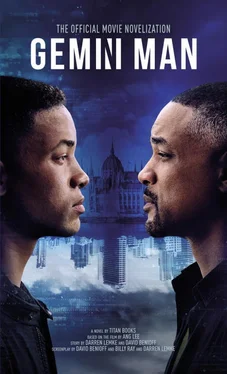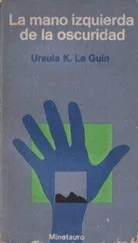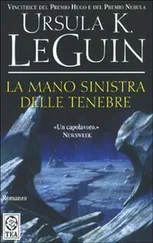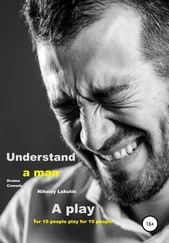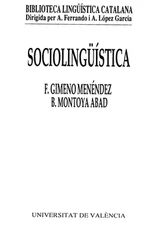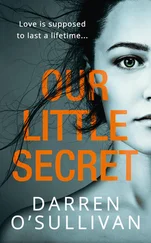Verris adjusted the long-necked high-intensity reading lamp on the nightstand, then offered Junior a syringe of lidocaine. Junior shook his head. He was facing away so Verris allowed himself a fleeting smile of approval. At least Junior had never had to relearn the lesson about overcoming pain. In truth, Verris had never known anyone else who was as adept at conquering their own physical discomfort.
But that didn’t mean Verris wanted to prolong it. Enduring pain put unwanted stress on even the healthiest person, not just physically but mentally as well. He worked as quickly and as gently as he could, dropping each fragment in an empty compartment of the first-aid kit so Junior could hear it and know it was out.
It wasn’t the first time Verris had pulled shrapnel out of a soldier, and he’d done so under much worse conditions—but there were more fragments than he’d realized, many of them tiny. He couldn’t risk leaving any behind—sepsis was no joke. He’d seen guys keel over with crazy-high fevers, bodies shutting down because some ham-handed medic had done a half-assed patch job. The men and women under Verris’s command died in combat like the warriors they were, not flat on their backs in delirium from massive organ failure.
He disinfected Junior’s wounds again before he started suturing. Just as he finished closing the first laceration and was about to go onto the next, Junior suddenly said, “He’s… very good.”
Verris didn’t have to ask who he was. “The best,” he replied. “That’s why I sent you .”
“He knew every move of mine before I made it,” Junior went on. “I’d have him, right there —then when I pulled the trigger, he was gone. Like a ghost.”
“Did you happen to get a look at his face?” Verris asked, finishing with another laceration.
“Not really,” Junior said. “I saw him up the stairs in the abandoned building, through a dirty mirror.”
“Thought you were on the roof,” Verris said sharply.
Junior sighed. “I was but he got a line on me. Had to jump down.”
“What do we always drill?” Verris asked him, his voice brisk. “Hold the high ground, put his back to the wall and—”
“Don’t let him off,” Junior finished in unison with him. “The whole thing was weird . Wiggy. ”
“How?” Verris asked as he started on the last wound in need of suturing.
“Like I was watching it all, but—” his son hesitated. “But I wasn’t actually there. Who is he?”
Junior being a little spooked wasn’t the only thing Verris found worrisome. He had trained his son to stay squarely in the moment, to focus on the immediate situation, but the way Junior was talking, it sounded like he was distancing himself instead. This was no good; Verris knew he had to nip that in the bud before Junior developed any seriously bad habits, like over-thinking, or wondering about the nature of his existence.
“Junior, the thing you’re struggling with—that strangeness —it’s fear.” Verris tied off the last suture and sat him up so he could look directly into his eyes. “Don’t hate it. Lean into it. Embrace it. Learn from it. Then overcome it.”
Junior nodded, looking sheepish.
“You’re right on the threshold of perfection, son.” Verris held up his thumb and forefinger with the thinnest sliver of a gap between them. “This close.” Pause. “You hungry?”
“Yes, sir.” Junior nodded again, this time with enthusiasm.
“Bowl of cereal sound good?” Verris asked.
“Yes, sir,” said Junior.
Verris saw his gaze move to the framed photo on the nightstand. It was the two of them, taken on one of their hunting trips when Junior had been eight or nine and they’d shared a less complicated existence.
He smiled at his son and took him into the kitchen.
* * *
The blown-up bus lay on its side, burn marks obscuring most of the large curved script that ran the length of it below the shattered windows. From where he stood in the roped-off observation area, Junior didn’t have to see the words clearly to know they said City Transportation Company. He’d been fluent in Arabic, both Modern Standard and Egyptian, for over half his life.
The scene in front of him was equally familiar: civilian ‘casualties’ lay motionless on the ground around the bus, dropped by ‘insurgents’ who had taken up positions behind it and picked them off as they crawled out of the wreckage. There were no live rounds, of course—they were all armed with tasers. Some of the civilians had been desperate enough to try for one of the low buildings that served as a village or neighborhood or installation or whatever the war games scenario called for. A few of them had made it but without weapons; they were pretty much sitting ducks. Eventually the insurgents would come out from behind the bus and advance on the village, ‘killing’ anyone they found.
In any case, the insurgents were in for a fight. As an observer, Junior had access to all the feeds for the exercise; his phone screen showed today’s designated good guys, an elite team of fighters coming in on the other side of the village, as yet undetected by the insurgents. Their uniforms were Libyan Army but there was an extra patch on their sleeves that identified them as Gemini support troops.
He watched as the Gemini team secured the other half of the village before preparing to attack the insurgents. They’d save civilians if possible but the insurgents were the priority, not rescuing non-combatants, and judging by the size of the Gemini squad, the mission was no prisoners. So they probably wouldn’t be taking civilians with them, either.
Junior knew that in a combat situation, it wasn’t always possible to rescue every innocent soul caught in the crossfire, but he also knew deep down he would never be able to abandon someone he could help, even if he was ordered to. That seemed to go against every principle his father had raised him to live by.
Then again, so did disobeying a direct order, yet he had done exactly that when he had left Colombia to come home, and his father had let him get away with it. But he hadn’t been in a combat situation with a team. The only team combat he had ever seen was in exercises like this one.
He had certainly been in a lot of those, more than anyone else in Gemini. He had taken his lumps and dished some out as both a designated good guy and an insurgent, although never as a civilian. When he had asked Verris why, his father had told him it was because unlike everyone else, he had never been a civilian and never would be. Verris had made it sound like one more extraordinary achievement that proved Junior was elite even among the hand-picked elite that comprised Gemini personnel.
Why his father would be proud of him for that, however, was beyond Junior’s understanding. If he’d never been a civilian, it wasn’t by choice. It wasn’t that he wanted to be a civilian—he didn’t. Never to have been one, though—that was different from being career military. Junior thought it sounded more like he was missing a big chunk of the human experience and that didn’t make him elite. It made him a freak.
Which he probably was to all the other Gemini soldiers. For them, the Gemini compound was a specialized training ground. For him, the training ground was home. But if the exercise he was watching had been an actual mission and he had been part of the squad fighting real insurgents, they wouldn’t have spared even a second to think what a freak he was.
Still, he had a feeling his never having been a civilian showed in ways that he wasn’t aware of, that there was something about him other people felt was wiggy or off, even if they didn’t know what it was.
Читать дальше
